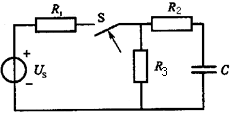阅读下面的文言文,完成小题。(每小题3分,共9分)
若夫淫雨霏霏,连月不开,阴风怒号,浊浪排空;日星隐曜,山岳潜形;商旅不行,樯倾楫摧;薄暮冥冥,虎啸猿啼。登斯楼也,则有去国还乡,忧谗畏讥,满目萧然,感极而悲者矣。
至若春和景明,波澜不惊,上下天光,一碧万顷;沙鸥翔集,锦鳞游泳;岸芷汀兰,郁郁青青。而或长烟一空,皓月千里,浮光跃金,静影沉璧,渔歌互答,此乐何极!登斯楼也,则有心旷神怡,宠辱偕忘,把酒临风,其喜洋洋者矣。
嗟夫!予尝求古仁人之心,或异二者之为,何哉?不以物喜,不以己悲;居庙堂之高则忧其民;处江湖之远则忧其君。是进亦忧,退亦忧。然则何时而乐耶?其必曰“先天下之忧而忧,后天下之乐而乐”乎。噫!微斯人,吾谁与归?
(节选自《岳阳楼记》)
小题1:下面各句中划线词语与例句中加点词语意思不同的一项是
例句:不以物喜
A.属余作文以记之
B.徒以有先生也
C.以是人多以书假余
D.以中有足乐者小题2:下面各句中划线词语用法不属于古今异义的一项是
A.去国怀乡
B.沙鸥翔集
C.春和景明
D.吾谁与归小题3:下面对选文内容理解不正确的一项是
A.全文的中心句是“不以物喜,不以己悲”。
B.“是进亦忧,退亦忧”中,“进”指“居庙堂之高”,“退”指“处江湖之远”。
C.全文体现了范仲淹“以民为本”的思想,表现了他的博大胸襟。
D.文中写景并不是作者的目的,作者真正的意图是借题发挥,谈一个人应有“先天下之忧而忧,后天下之乐而乐”的政治抱负,并以此规箴友人。
小题1:A
小题1:D
小题1:A
小题1:A中“以”是“来”的意思,其它都是“因为”的意思。
小题1:D中“与”不是古今异义,其它都是古今异义。
小题1:A中全文的中心句应是“先天下之忧而忧,后天下之乐而乐”。


